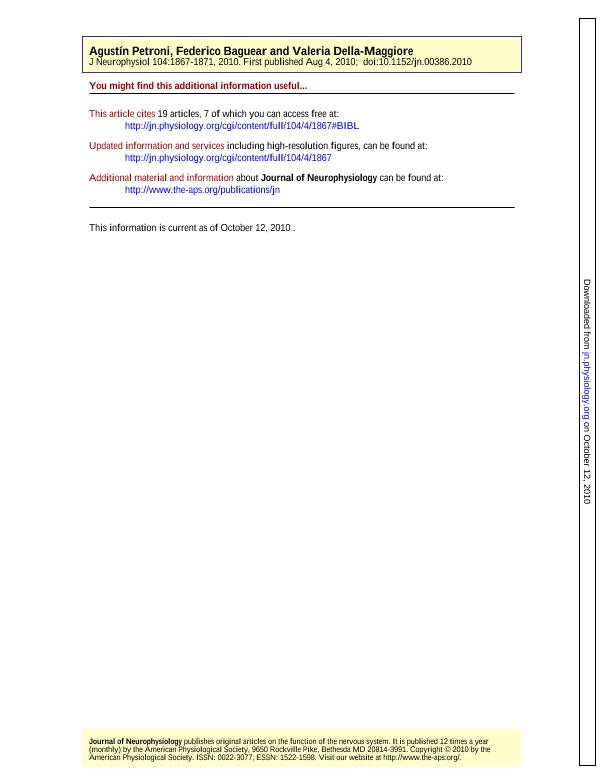Artículo
Motor resonance may originate from sensorimotor experience
Fecha de publicación:
10/2010
Editorial:
American Physiological Society
Revista:
Journal of Neurophysiology
ISSN:
0022-3077
Idioma:
Inglés
Tipo de recurso:
Artículo publicado
Clasificación temática:
Resumen
In humans, the motor system can be activated by passive observation of actions or static pictures with implied action. The origin of this facilitation is of major interest to the field of motor control. Recently it has been shown that sensorimotor learning can reconfigure the motor system during action observation. Here we tested directly the hypothesis that motor resonance arises from sensorimotor contingencies by measuring corticospinal excitability in response to abstract non-action cues previously associated with an action. Motor evoked potentials were measured from the first dorsal interosseus (FDI) while human subjects observed colored stimuli that had been visually or motorically associated with a finger movement (index or little finger abduction). Corticospinal excitability was higher during the observation of a colored cue that preceded a movement involving the recorded muscle than during the observation of a different colored cue that preceded a movement involving a different muscle. Crucially this facilitation was only observed when the cue was associated with an executed movement but not when it was associated with an observed movement. Our findings provide solid evidence in support of the sensorimotor hypothesis of action observation and further suggest that the physical nature of the observed stimulus mediating this phenomenon may in fact be irrelevant.
Palabras clave:
Motor Resonance
,
Mirror Neuron System
,
Visuomotor Learning
Archivos asociados
Licencia
Identificadores
Colecciones
Articulos(OCA HOUSSAY)
Articulos de OFICINA DE COORDINACION ADMINISTRATIVA HOUSSAY
Articulos de OFICINA DE COORDINACION ADMINISTRATIVA HOUSSAY
Articulos(SEDE CENTRAL)
Articulos de SEDE CENTRAL
Articulos de SEDE CENTRAL
Citación
Petroni, Agustin; Baguear, Federico; Della Maggiore, Valeria Monica; Motor resonance may originate from sensorimotor experience; American Physiological Society; Journal of Neurophysiology; 104; 4; 10-2010; 1867-1871
Compartir
Altmétricas




